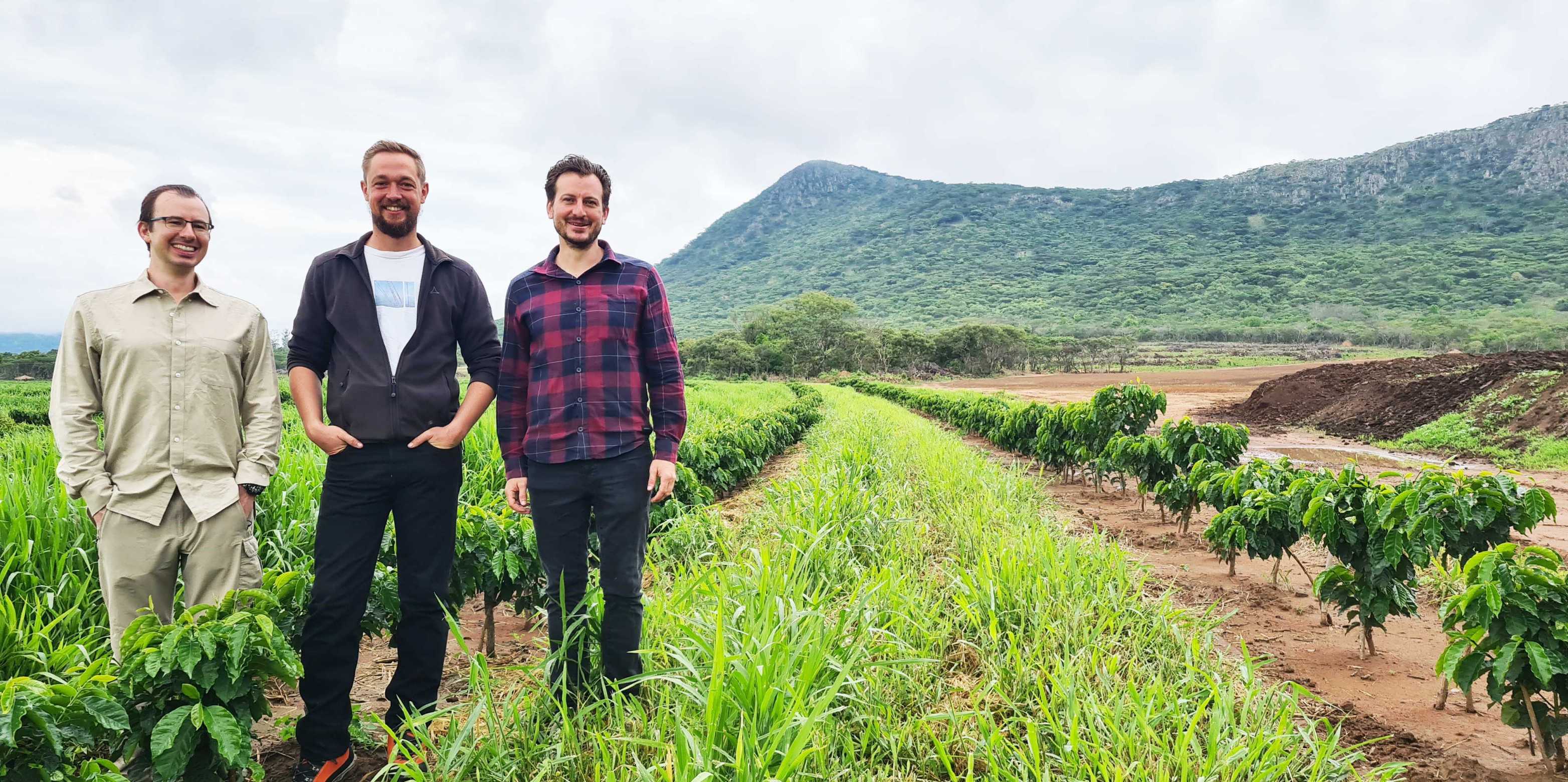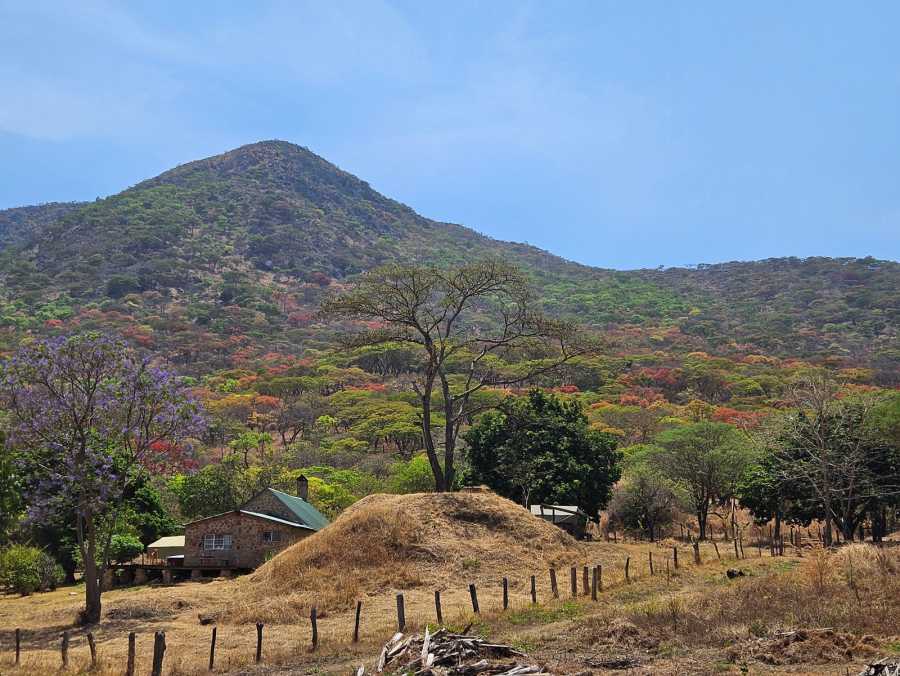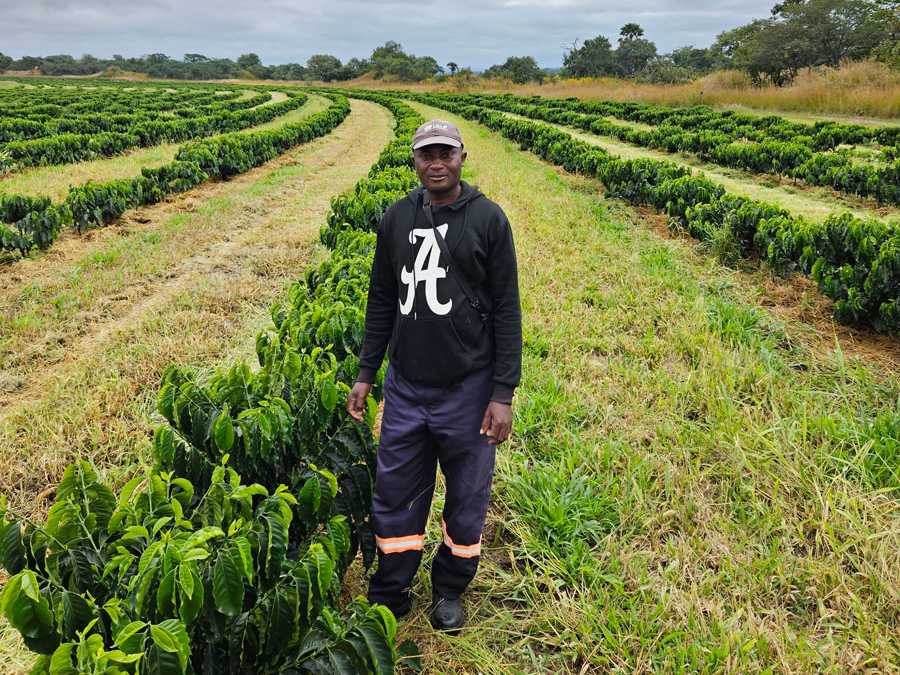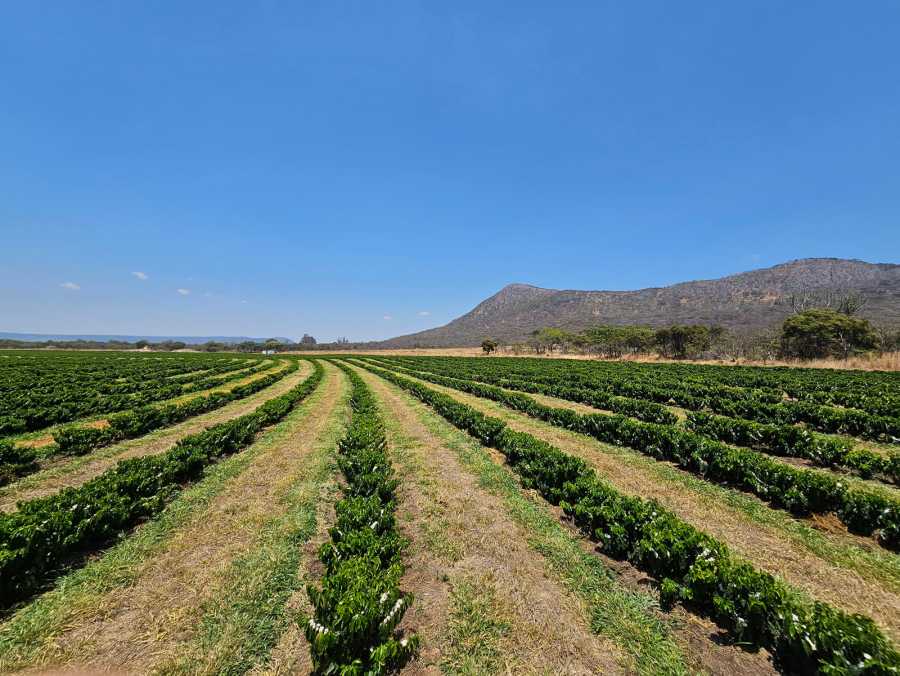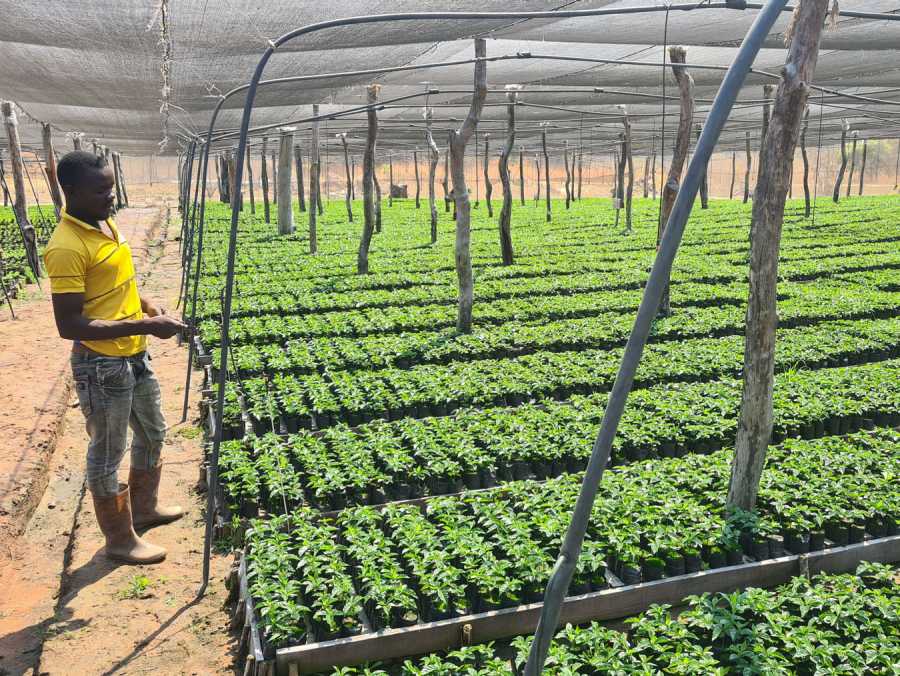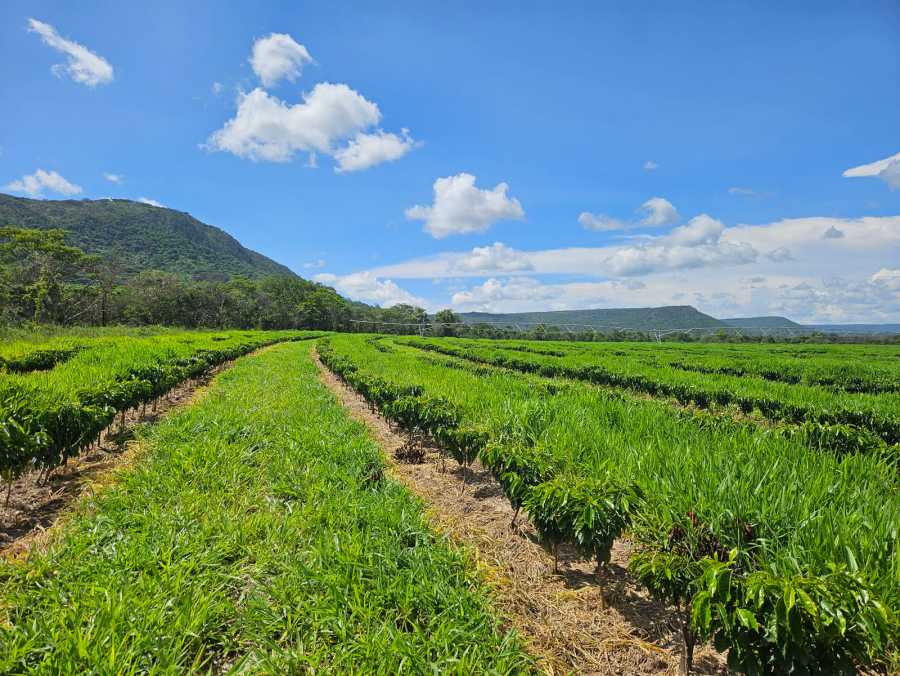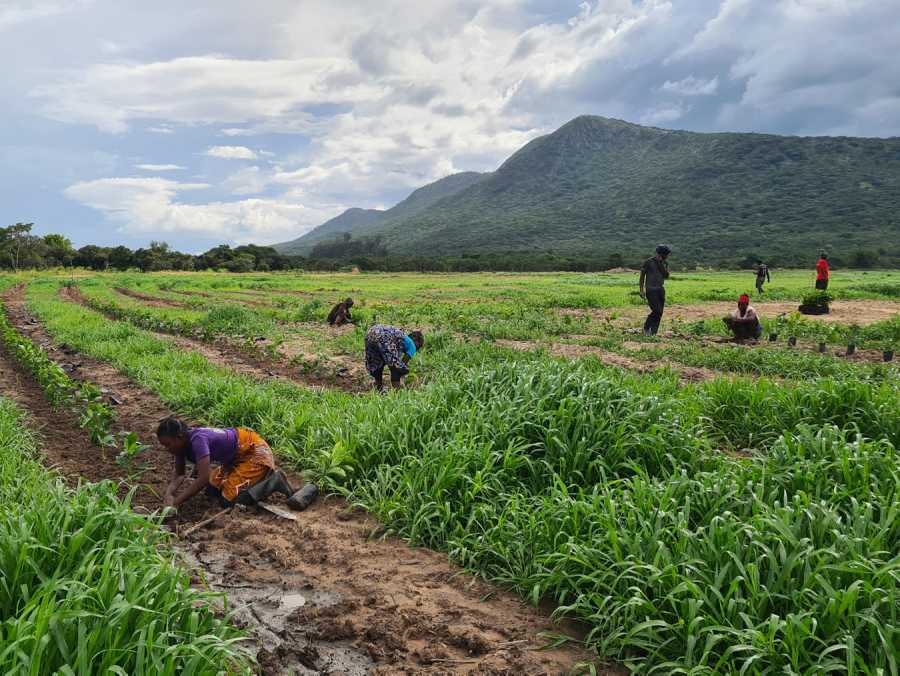A lot has changed since Fridolin Stocker dedicated himself entirely to his coffee farm. Three years have passed since then. "I used to prefer tea, but now I mainly drink coffee, of course," jokes the coffee farmer. When he came to the farm, it had been lying fallow since the 1990s and was becoming increasingly overgrown. There was no access road and no electricity supply. Stocker and Costa first built a road and a bridge over the river to make the land accessible. After that followed a high-voltage power line.
A start with minimal infrastructure
The previous owners' dilapidated ruin became a temporary home. At the beginning, there was little, but the plans were big. In the very first year, they planted 400,000 coffee seedlings and irrigated them with a petrol pump. In 2022, the team planted the first field - 65 hectares of coffee - using pivot irrigation. A year later, they put the second field into operation, another 50 hectares of coffee and the solar photovoltaic system for the main pump house, which has now been in operation for a fortnight. Zambia has a 6-month dry season, too much for the coffee plants, which can only survive a maximum of 4 months.
An ideal climate for coffee
Fridolin Stocker and business partner Luca Costa studied agricultural sciences together at ETH Zurich. After graduating, they both worked in the tropics, Costa at a cocoa farm in Côte D'Ivoire and Stocker to coffee farms in South East Asia and Africa. During a meeting in Africa, the idea of their own coffee farm first blossomed. After some unsuccessful searching, Stocker finally came across the abandoned farm on Mount Sunzu in 2016. "The love of drinking coffee only came afterwards," he explains. Above all, he wanted to become a farmer, "and it was incredible for me to see that there are still countries where there is so much uncultivated land and, in a climate, where plants can be grown all year round. I couldn't even imagine that before." Northern Zambia has a good climate for coffee, with an average temperature of a pleasant 20° Celsius.
Fundamental knowledge from his studies
At Mount Sunzu, Fridolin Stocker did not simply want to carry out the standard programme. The aim was to work with high efficiency and emitting as little CO₂ as possible. Fridolin Stocker says that this can only be achieved with an understanding of the fundamentals. "I apply the knowledge I learnt at ETH on a daily basis." For example, Stocker has to calculate how much water the plants need and the soil can store in order to optimise irrigation. That wouldn't be possible without his studies. What he likes about Mount Sunzu is that he and his partners can do exactly what they think is right. Sustainability has always been a key criterion for Stocker. "I love working in nature and it's natural for me to want to keep nature and the world as healthy as possible." Stocker's strategy: to reliably generate good yields with precise timing and exact quantities of fertiliser and water without wasting resources. For example, fertigation is used on Mount Sunzu: very small quantities of fertiliser are applied to the soil at high frequency.
